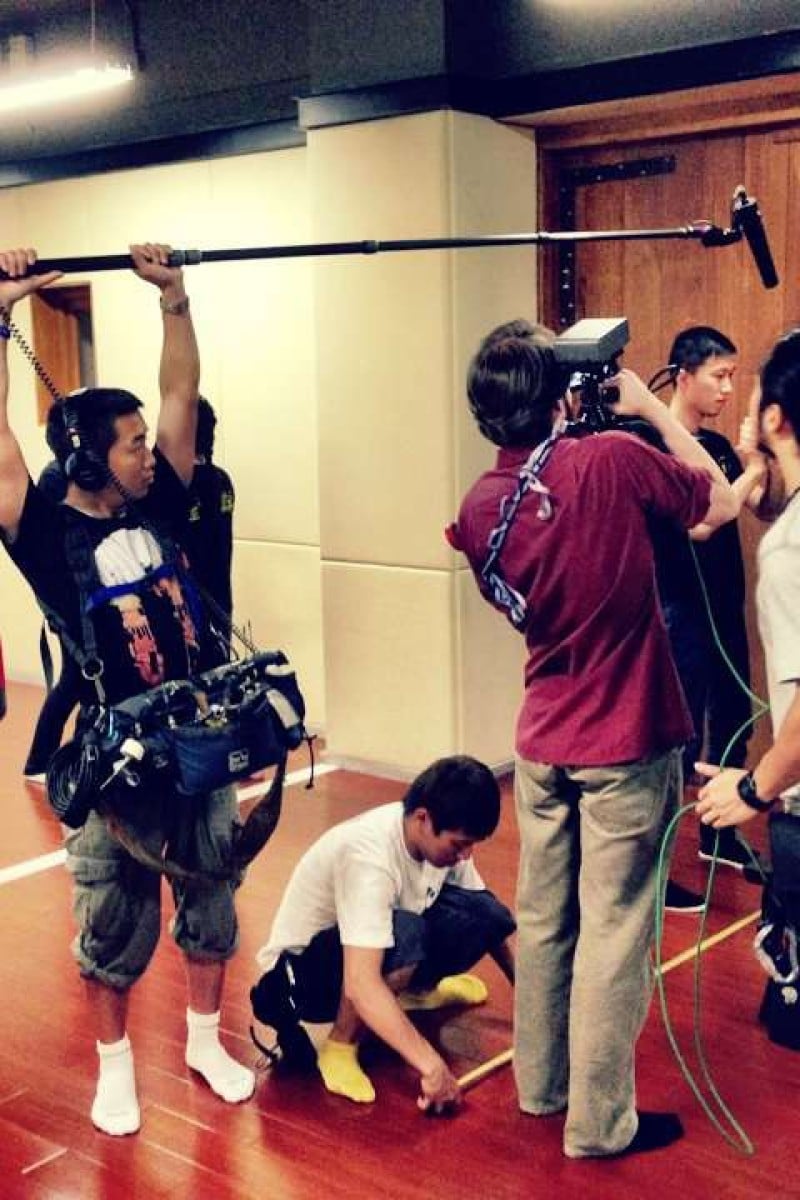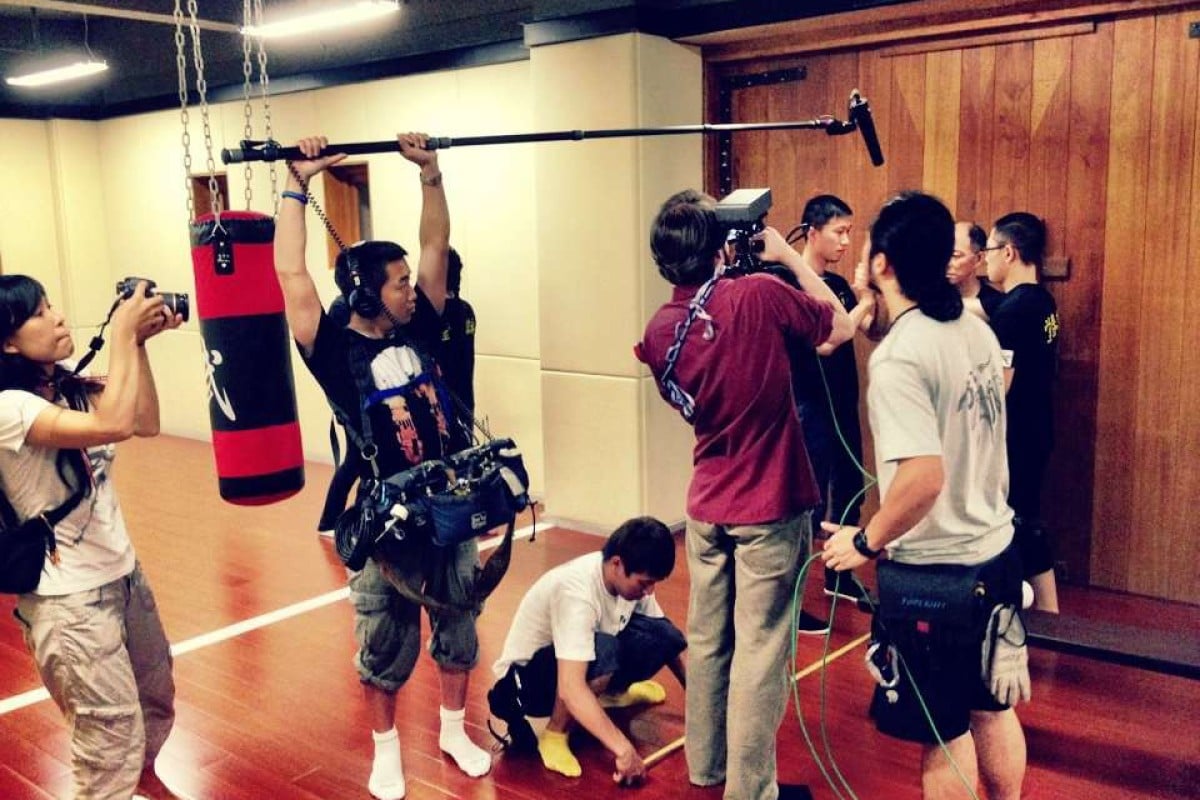
Secrets from the film set: A cameraman and sound guy reveal what they go through
Movie making may seem fabulous – and there are certainly perks, but there’s a lot of hard work involved, too
 Location sound recordist Dominic Yip on set at a martial arts gym.
Location sound recordist Dominic Yip on set at a martial arts gym.?xml version="1.0" standalone="yes"?
Young people – or their parents – often have the impression that creative industries are not a wise career choice. They’re seen as unstable and low-paying, or that it’s not “serious work” that others would find respectable. But the truth is there is a lot of hard work involved.
“Video camera work is physically tough. There’s a lot of gear to haul about,” says Moray Wedderburn, a Hong Kong based cameraman who started in film school and now owns a small video production company. “Cameras have become much smaller, but I still need to carry many heavy lights, stands and batteries around.”
Wedderburn has been in the industry for more than 25 years, and has worked on major projects for the Hong Kong Trade Development Council, RTHK, and the National Geographic channel. His job allows him to discover what he really loves to do, but it also requires a lot of patience and negotiation skills.
For example, he has to deliver what the clients want, even if this means going against his creative logic or vision.
But the job is such that he is constantly learning new things – and finding out about himself. “It surprised me how much I enjoyed editing,” Wedderburn says. “I’d get so wrapped up in a creative edit that a natural flow just happens.” Even working out the perfect frame and lighting to make the most boring sets – like an office, say – look interesting is an exciting challenge.
While Wedderburn admits that being a cameraman involves on-the-job training and learning, he strongly recommends going to film school, too.
“University broadens your mind and exposes you to lots of different ideas,” he says. That’s important, because there are many types of cameramen, including those who shoot travel or cooking shows, documentaries, movies, corporate videos, and news, which may involve shooting in dangerous locations. The day-to-day work for each of those is a little different, so you need to decide what kind of cameraman you want to be.
Being a cameraman isn’t the only career you can pick up in film school. Formal training will also help if you want to become a location sound recordist (“the sound guy”).
Dominic Yip studied the basics of filming at The Hong Kong Academy for Performing Arts, where he majored in sound. He’s now a freelance sound guy, and has worked on everything from films (It’s Already Tomorrow in Hong Kong) to documentaries (Inside: The Hong Kong Rugby Sevens , which Wedderburn also worked on).
Like Wedderburn, Yip’s job is also physically tough. “The [sound] equipment is heavy and sometimes you have to hike up a mountain with it,” he says.
Yip advises young people interested in his career to be open-minded and flexible in their approach and problem-solving.
“Most of the time I have to make decisions and get results on my own, using the right technique and in a very limited amount of time. So don’t just learn about sound,” Yip says, “learn about every aspect of filming, because sound recordists work closely with other departments, too.
“You have to understand camera framing so you know how to capture the sound to match the perspective of the shot; or lighting so you avoid getting the shadow of the boom [mic] in the frame. You have to understand storytelling so you know your treatment of sound elements.”
Some of that will be taught in film school, but there are a lot of things that you’ll learn through experience. Yip says there are tricks and techniques he had to experiment with and learn himself. It’s all worth it though, because his job has taken him on travels to amazing places, from Alaska to Cambodia.
When it comes to creative industries, you often hear how passion and perseverance are important, and they are, but Wedderburn and Yip have some purely practical advice for students interested in their fields.
Yip suggests getting your own gear. “It’s always best for soundies to work with their own equipment,” he says, “so save your money and buy your own.”
Wedderburn, meanwhile, reminds us of the physical nature of his work. “Try to get help carrying all the gear, or use a trolley. Look after your knees and back.”
